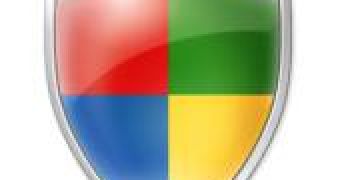Microsoft has responded officially to a story published recently reporting that Google had taken the decision to dump Windows from its IT environment, and replace it with Linux, or swap PCs with Macs. At the time of this article, Google had yet to confirm whether it was indeed moving away from Windows, but, according to the initial report, the Mountain View-based company was doing so citing security concerns.
In a post on the Windows Team blog, Brandon LeBlanc, Windows communications manager on the Windows Client Communications Team, defended Windows and the security the operating system brought to the table. “There’s been some coverage overnight about the security of Windows and whether or not one particular company is reducing its use of Windows. We thought this was a good opportunity to set the record straight,” he stated.
LeBlanc doesn’t mention Google, however, it is not hard to see what “one particular company” he is referring to, and he goes on to indicate that the Mountain View-based company has had its own problems in terms of security and privacy. “Yale University halted their move to Gmail (and their move to Google’s Google Apps for Education package) citing both security and privacy concerns,” LeBlanc revealed.
In mid-April 2010, Marc Maiffret, a former hacker, now a legitimate security researcher and chief security architect at FireEye, praised Microsoft for its focus on security. Maiffret said at the time that, because of the Security Development Lifecycle (SDL), Microsoft’s software was superior in terms of security to whatever Apple had to offer.
“When it comes to security, even hackers admit we’re doing a better job making our products more secure than anyone else,” LeBlanc noted. “And it’s not just the hackers; third party influentials and industry leaders like Cisco tell us regularly that our focus and investment continues to surpass others.”
LeBlanc also takes a swing at Apple, pointing out that malware attacks are also targeting Mac OS X, and that simply switching from a PC to a Mac will not solve any security problems. A range of Windows 7 features are cited next in order to make it clear for end users that the Redmond company has a strong focus on security:
“•We ship software and security updates to our customers as soon as possible through Windows Update and Microsoft Update to keep our customers safe. •We highly recommend our customers enable Automatic Update to ensure they are protected from attacks. •With Windows 7, we added improvements to BitLocker for disc encryption (we also introduced BitLocker-to-Go for external USB devices), and added enhancements to the built in Windows Firewall for better protection. •Windows 7 has Parental Controls built in that can be combined with Windows Live Family Safety to create a safer experience on the PC for children. •Windows 7 comes with Internet Explorer 8 which includes SmartScreen Filter which has proven its success time and time again. •And Windows 7 also uses Address Space Layout Randomization (ASLR) as well by randomizing data in memory.”

 14 DAY TRIAL //
14 DAY TRIAL //